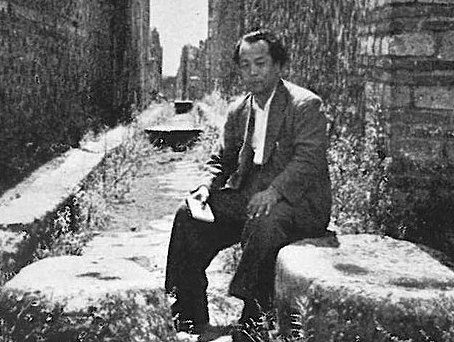Japan novelist and Ashihei Hino: Leftist, nationalist, to writing solace before suicide
Lee Jay Walker
Modern Tokyo Times

The Japanese novelist Ashihei Hino is a victim of the radical history of the time he belonged to. Hence, during his early adult period, he had leftist leanings. Yet, in time – and serving in the Japanese military – he praised Japanese militarism while showing “a human face” to expansionism through the prism of his writing. Therefore, in the post-war period, he would be despised by the ruling elites who sought to appease America.
In truth, it is difficult for post-war people – and individuals who never experienced Soviet communism, Nazism, Western colonialism, slavery that still existed in Sharia Islamic states in the Gulf region until the 1960s and early 1970s, and other momentous events – to understand the dramatic struggles of his period. Therefore, unlike the Edo Period, ruling elites in the Meiji Period (1868-1912) decided to join the “empire club” after modernizing (British, French, Ottomans, and so on).
It is easy to condemn Japanese nationalism and imperialism that flowed throughout the Meiji, Taisho, and earlier part of the Showa periods of history. However, Japan understood that imperial powers were expanding – and had already expanded – in Africa and Asia. Similar to past events in South America but now Northeast Asia was in line concerning the weakness of the nation-state of China. Therefore, the mindset was either to be subdued – or vanquished – like so many others in history – the British, French, Ottomans, and others forced their world on others – or to “join the club” and protect the nation from imperial expansionists.
Hino belonged to this world. Hence, from leftist ideals to militarism, the flow of history impacted countless millions of people who faced this brutal reality. Therefore, from fighting for the Japanese Imperial Army in China – to helping the information corps – Hino served Japan during this momentous period in history.
His books Fun’nyōtan and Mugi to Heitai were widely adored in Japan – with Mugi to Heitai selling over one million copies. They portrayed the daily lives of Japanese soldiers that provided a soft power touch for the ruling elites of the day.
Hino – knowing that America’s domination of Japan was in hand – wrote, “my heart’s belief in the greatness of the Japanese soldier remains unchanged … I have thought for a long time that all Japanese must look up to their soldiers, and that those soldiers who lay in eternal rest should be the living and spiritual foundation of the Japanese people.”
Ironically, the binding theme Hino witnessed from the militarism period that purged socialists and communists – to America and its dominance over Japan in the post-war history period – was that communists, democrats, nationalists, and socialists all enacted purges when in power.
Hino committed suicide when only 53 years old. Before this, he gained some solace in his late writings titled Hana to Ryuu and Kakumei Zengo.
His suicide concerned “a vague anxiety” – similar to the reason Ryūnosuke Akutagawa also gave before taking his own life.
However, for Hino, this “vague anxiety” probably also concerned the new Japan that emerged under the watchful eyes of America. In truth, he was a victim of the times he belonged to that were outside his control.

Modern Tokyo News is part of the Modern Tokyo Times group
DONATIONS to SUPPORT MODERN TOKYO TIMES – please pay PayPal and DONATE to sawakoart@gmail.com
http://moderntokyotimes.com Modern Tokyo Times – International News and Japan News
https://www.pinterest.co.uk/moderntokyotimes/ Modern Tokyo Times is now on PINTEREST
http://sawakoart.com – Sawako Utsumi personal website and Modern Tokyo Times artist
https://moderntokyonews.com Modern Tokyo News – Tokyo News and International News
PLEASE JOIN ON TWITTER
https://twitter.com/MTT_News Modern Tokyo Times
https://www.facebook.com/moderntokyotimes/ Facebook